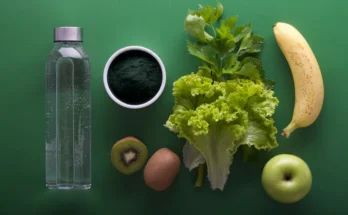Rethinking Health:
Health is often defined by extremes. We’re taught to chase the perfect body, fear every calorie, and view aging as a battle. But what if health isn’t about constant control, but about connection? What if true wellness isn’t something you fight for, but something you build gently, every day?
Health is not a six-pack. It’s not a detox tea or a step counter flashing 10,000. It’s the ability to live fully—clear in mind, strong in body, and calm in spirit. It’s waking up without dread. It’s moving because you love to, not because you hate your shape. And it’s eating to nourish, not to punish.
True health is harmony. And in today’s world of constant noise, finding that harmony has never been more important—or more revolutionary.
The Foundation of Health:
-
Holistic Health
The body doesn’t exist in isolation. Neither does the mind. And neither can thrive without the other. When your mental health suffers, your body follows. When your physical health declines, your mood often sinks with it. This deep connection is why holistic health matters—it looks at the whole picture, not just the symptoms.
Holistic health isn’t a trend. It’s a return to wisdom. It means caring for your sleep, your boundaries, your food, your movement, and your peace. It means asking not just “What hurts?” but “What’s the root?” When all parts of you are supported, healing becomes natural. And thriving becomes possible.
-
The Myth
There is no universal blueprint for health. What energizes one person might drain another. What heals one may irritate someone else. We are all walking ecosystems—shaped by genetics, environment, history, and choice.
The key is personalization. Learning to listen to your body instead of comparing it to someone else’s. Health isn’t found in mimicking someone else’s lifestyle—it’s discovered in paying attention to your own. The body is always communicating; the challenge is learning how to listen.
Fueling Your Future and Not Your Fear
-
Food as Nourishment, Not Punishment
Somewhere along the way, food became an enemy. Calories became numbers to fear, not energy to embrace. But the truth is, food is one of the most profound expressions of self-care we have. Every bite is a message to your body: I want you to thrive.
A truly healthy diet isn’t about deprivation—it’s about nourishment. It’s colorful, diverse, and joyful. It honors hunger instead of silencing it. It celebrates tradition and flavor while respecting function. And it evolves with your needs, your season of life, and your emotional state.
-
The Role of Gut Health in Overall Wellbeing
We often forget that the gut isn’t just about digestion—it’s a command center for overall health. The gut communicates with the brain, supports the immune system, and influences mood through neurotransmitters like serotonin.
When your gut is thriving, your energy improves, your skin clears, your sleep deepens, and your mind becomes more focused. Supporting gut health with fiber-rich foods, fermented ingredients, hydration, and rest isn’t just smart—it’s transformative.
Movement as Medicine:
-
Redefining Fitness for Real Life
Exercise should never be a punishment for what you ate or a desperate attempt to shrink yourself. Instead, it should be a celebration of what your body can do. Movement is a gift—one that boosts mood, supports heart health, builds strength, and reduces stress.
You don’t need a gym membership or a fancy fitness tracker to be active. Walking your dog, dancing in your kitchen, stretching between emails, or hiking on the weekend all count. Fitness is not defined by intensity—it’s defined by consistency and enjoyment.
-
The Mental Health Benefits of Moving Your Body
One of the most underappreciated aspects of exercise is its impact on mental health. Movement triggers the release of endorphins—natural chemicals that reduce stress, boost happiness, and sharpen focus.
Regular physical activity can reduce symptoms of anxiety, ease depression, and even improve sleep. In a world filled with overstimulation and emotional burnout, moving your body might just be the most accessible therapy there is.
The Overlooked Superpower:
-
The Cornerstone of Health
In our productivity-obsessed society, sleep is often sacrificed in the name of “getting things done.” But poor sleep can derail even the most disciplined wellness routine. It weakens immunity, disrupts hormones, dulls focus, and elevates stress.
Sleep is when your body heals, resets, and recharges. It’s not a luxury—it’s a necessity. Prioritizing sleep hygiene, such as reducing screen time before bed, maintaining a regular schedule, and creating a calming bedtime routine, can have ripple effects across every area of your life.
-
Dreams, Memory, and Mental Clarity
Sleep isn’t just physical recovery—it’s also emotional processing. During deep sleep and REM cycles, your brain consolidates memories, solves problems, and balances emotions. That’s why even after a short nap, you often feel clearer and calmer.
Improving sleep quality might not make your problems disappear, but it will make you more equipped to handle them.
Emotional Wellness and Mental Strength:
-
Stress
Stress is a silent health disruptor. It raises blood pressure, weakens immunity, and disrupts hormones. Yet, we often dismiss it as “normal.” While a certain amount of stress is inevitable, chronic stress is not sustainable.
Learning to manage stress isn’t about escaping life—it’s about building resilience. Tools like mindfulness, breathwork, journaling, or therapy can help you process emotions before they settle into the body as tension or illness.
Mental health is health. Period. And giving it the attention it deserves is a revolutionary act of self-respect.
-
The Power of Mindset in Healing
Your thoughts shape your health more than you might realize. Studies show that a positive mindset can improve recovery, reduce pain, and enhance life expectancy. This isn’t about toxic positivity or ignoring reality—it’s about choosing to believe in your capacity to heal and grow.
Cultivating a growth mindset, practicing gratitude, and surrounding yourself with support are not “extras”—they’re essential tools in the health toolbox.
The Importance of Connection and Community:
-
Humans Are Wired for Connection
Isolation is as harmful to health as smoking or obesity. Connection, on the other hand, lowers stress, increases longevity, and improves emotional well-being. Whether it’s family, friends, or community groups, having people to share life with makes every health journey more sustainable.
You don’t have to navigate your wellness path alone. Healing often accelerates when shared. A conversation can sometimes do more than a supplement ever will.
-
Service as a Form of Self-Care
Caring for others and contributing to something bigger than yourself is a lesser-known pillar of health. Volunteering, helping neighbors, or simply being present for a friend can bring a profound sense of purpose. And purpose, studies show, is linked to longevity, resilience, and happiness.
Wellness isn’t always about looking inward. Sometimes, the most healing thing we can do is look outward—and lift someone else along the way.
Conclusion:
Health isn’t a destination. It’s not a 30-day challenge, a number on a scale, or a blood test result. It’s a relationship—with your body, your mind, your choices, and the world around you. Like any relationship, it requires attention, grace, and time.
Some days you’ll eat greens, drink water, and meditate. Other days you’ll sleep in, cry, or eat too much chocolate. That’s okay. Health is not perfection—it’s permission. Permission to be human. To ebb and flow. To learn and unlearn. And to return to yourself again and again.
In a world obsessed with the quick fix, let your health journey be the long, beautiful, winding road it was always meant to be. Not because you’re broken, but because you’re worthy of feeling well.




